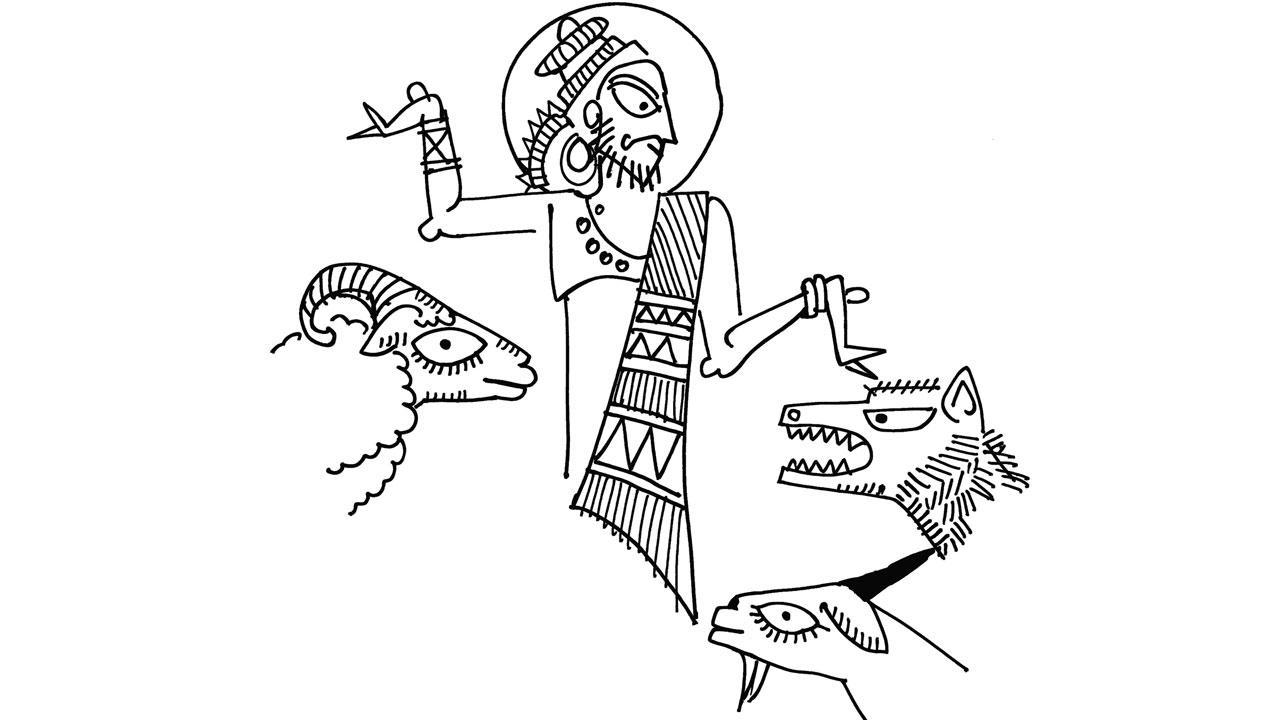Hindus have a very complex idea of god. God is not all powerful

Illustration/Devdutt Pattanaik
 Nowadays, when people use the word God, they spell it with an uppercase. Unknowingly, they are referring to the idea of God which emerged in the Middle East, amongst Jewish, Christian and Islamic communities. This idea has spread around the world over the last thousand years, through various colonial and Imperial forces, to the point that it is now almost assumed to be a universal fact, but it is not so. This monotheistic idea of God did not, still does not, exist in the far East, in China, in Japan, amongst tribes of America, Africa and Asia, who have not yet converted.
Nowadays, when people use the word God, they spell it with an uppercase. Unknowingly, they are referring to the idea of God which emerged in the Middle East, amongst Jewish, Christian and Islamic communities. This idea has spread around the world over the last thousand years, through various colonial and Imperial forces, to the point that it is now almost assumed to be a universal fact, but it is not so. This monotheistic idea of God did not, still does not, exist in the far East, in China, in Japan, amongst tribes of America, Africa and Asia, who have not yet converted.
In Hollywood movies, the word “god” is shaped by Greek mythology as someone with extreme power, and with no responsibility or accountability. This is the model for superheroes. They are usually highly competitive. They collaborate only when they have a common foe. Power is closely linked with this popular idea of god. Not kindness or compassion or wisdom.
Power gets concentrated in one entity with Christian and Islamic mythologies. This is centralisation. This is the spiritual basis of feudalism. A central power to whom everyone is beholden. This continues in secular atheist worlds too, where God is replaced by all-powerful leaders (dictators) or all-powerful state (run by intellectuals, bureaucrats and judges). Monotheism ends power distribution that was the hallmark of polytheism.
Christianity and Islam speak of God as kind and merciful—but this compassion and mercy only comes to you after you convert. Conversion is critical. No compassion for those outside the tribe, as is evident in the rhetoric of Zionlists and Islamists!
In Buddhist and Jain mythology, there is no concept of one all-powerful god; there are multiple small gods who will eventually bow to the Tirthankara or the Buddha, who speak not of power to control the world, but the power to overpower desire, hunger, jealousy, anger, pride. Here, divinity is linked to psychology more than sociology.
Hindus have a very complex idea of god. God is not all powerful. Nature and karma serve as the background in which God exists. Myths speak of devas battling asuras. These were confused by Orientalists with the Olympians and the Titans of Greek mythology. They simply reveal creatures entrapped by the ego, being territorial. Higher than them are the hermit-householder Shiva and the householder-hermit Vishnu, who have no ego, and who additionally contain the universe within them. But unlike Christian and Islamic and Jewish notions of God, they do not seek submission or obedience.
Burdened by ideas of monotheism, since colonial times, Hindus wonder if Shiva and Vishnu are one, and if they can be approached without imagery. And how does one accommodate the Goddess? Vedic concepts like Bhagavan, Ishwara, Brahman and Atma cannot be equated with Middle Eastern ideas of all-powerful God. The latter only makes sense of politicians, not to those who battle the ego.
This confusion between different ideas of God emerged in the 20th century as people went about saying “all religions are the same” and by ignoring mythology and privileging (Western) philosophy and concepts such as equality, justice and human rights, not realising their roots in ancient Greek and Biblical notions of power.
The author writes and lectures on the relevance of mythology in modern times. Reach him at devdutt.pattanaik@mid-day.com
 Subscribe today by clicking the link and stay updated with the latest news!" Click here!
Subscribe today by clicking the link and stay updated with the latest news!" Click here!










